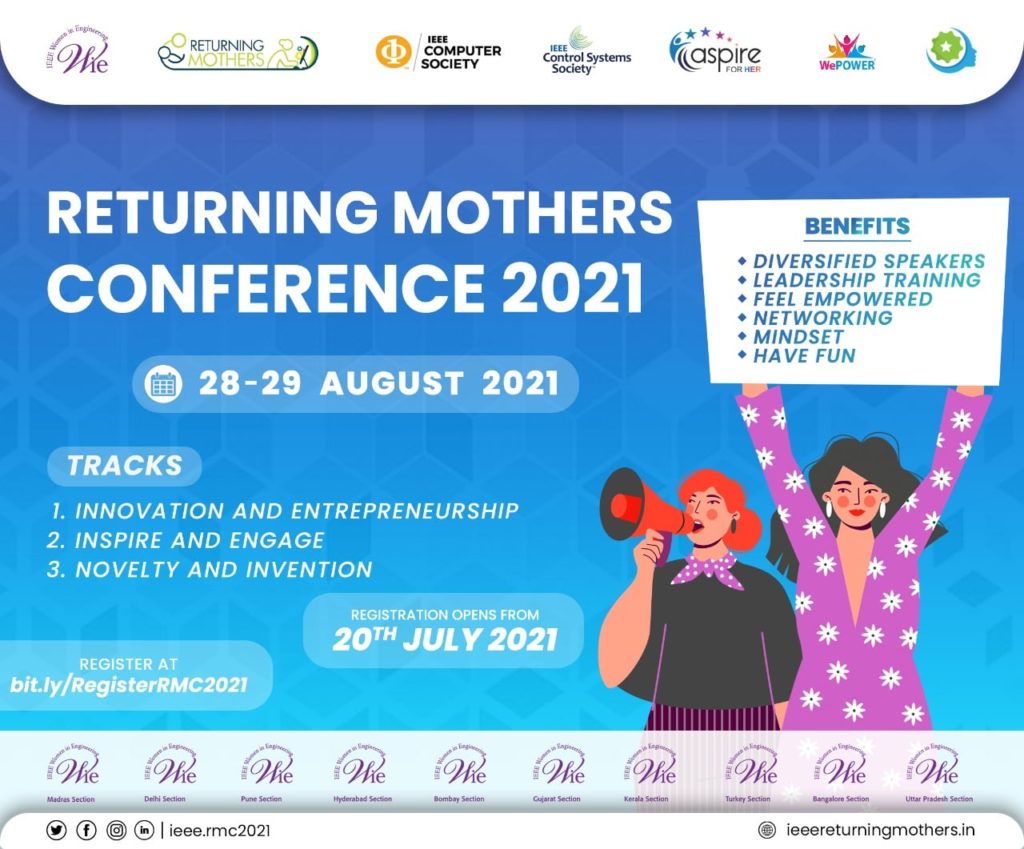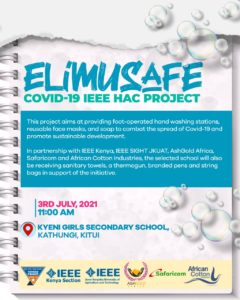 After a successful application of the IEEE HAC/SIGHT COVID-19 project, ElimuSafe project was approved under IEEE Kenya Section courtesy of the lead applicant Sally Musonye. The project name is from two words “Elimu” meaning Education and “Safe” whose main goal is to promote a safe learning environment for the students. The project was to be implemented in partnership with IEEE Jomo Kenyatta University of Agriculture and Technology (JKUAT) SIGHT chapter. The implementation took longer than expected due to COVID-19 restrictions from the Government of Kenya especially when guests are supposed to visit schools. After the ban was lifted, the volunteers finally got the opportunity to implement the project as planned. The funding was supposed to facilitate implementation of foot-operated hand washing stations, reusable face masks and soap. The implementing team decided to partner with other organizations such as AshGold Africa, Safaricom PLC, and African Cotton Industries to implement the project in Kyeni Girls Secondary School in Kitui County, Kenya.
After a successful application of the IEEE HAC/SIGHT COVID-19 project, ElimuSafe project was approved under IEEE Kenya Section courtesy of the lead applicant Sally Musonye. The project name is from two words “Elimu” meaning Education and “Safe” whose main goal is to promote a safe learning environment for the students. The project was to be implemented in partnership with IEEE Jomo Kenyatta University of Agriculture and Technology (JKUAT) SIGHT chapter. The implementation took longer than expected due to COVID-19 restrictions from the Government of Kenya especially when guests are supposed to visit schools. After the ban was lifted, the volunteers finally got the opportunity to implement the project as planned. The funding was supposed to facilitate implementation of foot-operated hand washing stations, reusable face masks and soap. The implementing team decided to partner with other organizations such as AshGold Africa, Safaricom PLC, and African Cotton Industries to implement the project in Kyeni Girls Secondary School in Kitui County, Kenya.
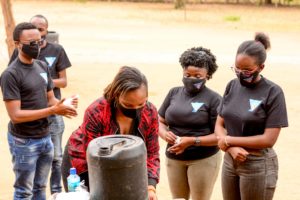 Kyeni Girls was started in the year 2015 with 3 students. It was later renamed from Kathungu Girls Secondary School to Kyeni Girls Secondary School due to communal reservations. The school has a capacity of 157 students. It has a total of 120 currently with an exception of form four who left in March 2021. Form one class is expected to join in August 2021. It has a total of 10 teachers, and 5 non-teaching staff. Kyeni Girls is situated in Kathungu village, Kathungu location, Mulango ward, Katulani sub-county and Kitui county. The school occupies 4.5 acre of land. It has one administration block, five classrooms, one science laboratory, one dormitory, and one dining hall. So far it has done KCSE three times since 2018 to date. The current mean dropped to 3.2 out of 12 points but the school’s target for 2021 is 4.5. Most of the students are boarders but a few cases who are dayscholar. The school has graduated 95 students since its inception.
Kyeni Girls was started in the year 2015 with 3 students. It was later renamed from Kathungu Girls Secondary School to Kyeni Girls Secondary School due to communal reservations. The school has a capacity of 157 students. It has a total of 120 currently with an exception of form four who left in March 2021. Form one class is expected to join in August 2021. It has a total of 10 teachers, and 5 non-teaching staff. Kyeni Girls is situated in Kathungu village, Kathungu location, Mulango ward, Katulani sub-county and Kitui county. The school occupies 4.5 acre of land. It has one administration block, five classrooms, one science laboratory, one dormitory, and one dining hall. So far it has done KCSE three times since 2018 to date. The current mean dropped to 3.2 out of 12 points but the school’s target for 2021 is 4.5. Most of the students are boarders but a few cases who are dayscholar. The school has graduated 95 students since its inception.
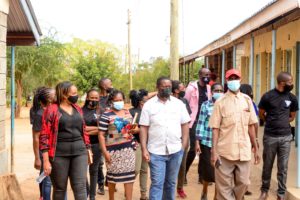
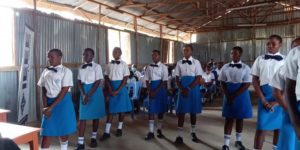
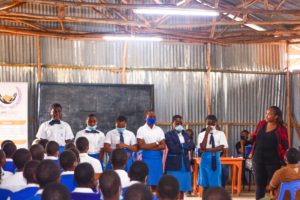
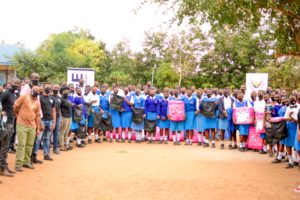
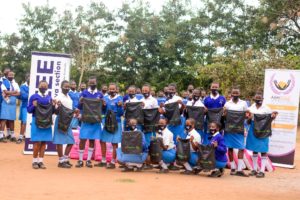
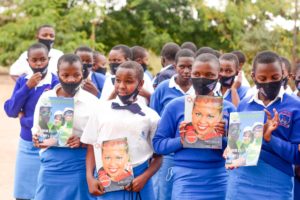
On the D-Day, the team arrived in the afternoon after almost 4 hours of driving from Nairobi. The team of 13 volunteers and mentors were welcomed in the school by the school principal, teachers, and students. The team had a briefing session with the school administration which also involved going round the school to view their facilities and infrastructures. Later, everyone in the school was gathered in the dining hall where students showcased their talents through poems and songs which were very insightful and informative. Finally, volunteers and mentors had a chance to share their motivational and inspirational journey to the students. The session lasted for almost 2 hour.
Through IEEE and other partners, the school received 6 IEEE-branded foot-operated hand-washing stations, 200 IEEE-branded reusable face masks, soap making chemical ingredients and containers for 100 liters liquid soap, 100 Safaricom-branded string bags and pens, 1000 pieces of sanitary towels and Queenengineers magazines highlighting inspirational women engineers from Kenya.
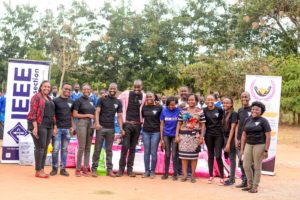
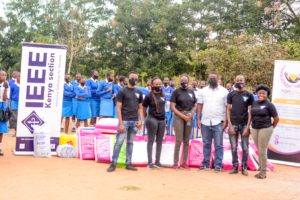
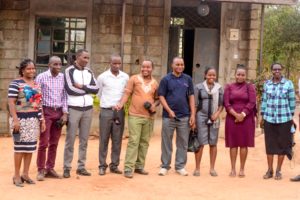
Volunteers left the school at around 6:30 pm and the last person was reported to arrive safely at home at around 11pm due to evening traffic jams in Nairobi. All went on well and the team got great feedback from the teachers and students regarding the impact created by the IEEE and partners. The following are some of the feedback received:
“The whole idea was innovative,and to the student,a game changer!It was so thoughtful of you to think about the Kyeni fraternity,we are immensely grateful!” – Madam Mutegi (HOD Boarding)
“I sincerely appreciate the whole IEEE team for a humble visitation. As Kyeni Girls’ we feel humbled for stretching a generous hand and touching the hearts of this dear ones,your input was so handy and I believe it will impact many towards their academic performance and devotion to service in the society.may the good God grant you providentially to be a blessing to other souls.” – Nyabuto Godfrey – HOD (Guidance and Counseling)
“The event was nice and it will go a long way in impacting the students’ academic work positively.” – Mr Mwanthi
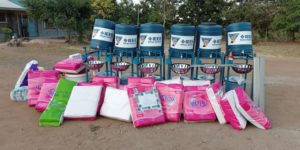
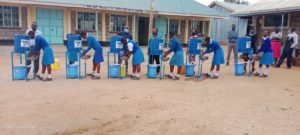
Special thanks to IEEE HAC/SIGHT committee, IEEE Kenya Section, IEEE JKUAT SIGHT Chapter, Safaricom PLC, AshGold Africa, African Cotton Industries, Kyeni Girls, and all volunteers and mentors for making this project, event, and activities of the day a success.
IEEE JKUAT SIGHT Chapter Volunteers: Tony Ngugi (Chair), Ruth Waithera (Vice Chair), Dorcas Litunya (Treasurer), Vivianne Kendi (Secretary), George Kamundia (Webmaster), and Mr Simon Njeru Manegene (Advisor)
Mentors: Vannessa Kawira, Joe Kuria, Winfred Mutinda, and Miriam Woki
Article compiled by: Kithinji Muriungi (Corresponding Member, IEEE R8 Action for Industry Sub-Committee(2021) || IEEE Photonics Society Global Strategy Rep (Africa), Globalization & YPAC (2021/23) || Chair, IEEE YP, Kenya Section (2020/21))
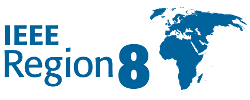
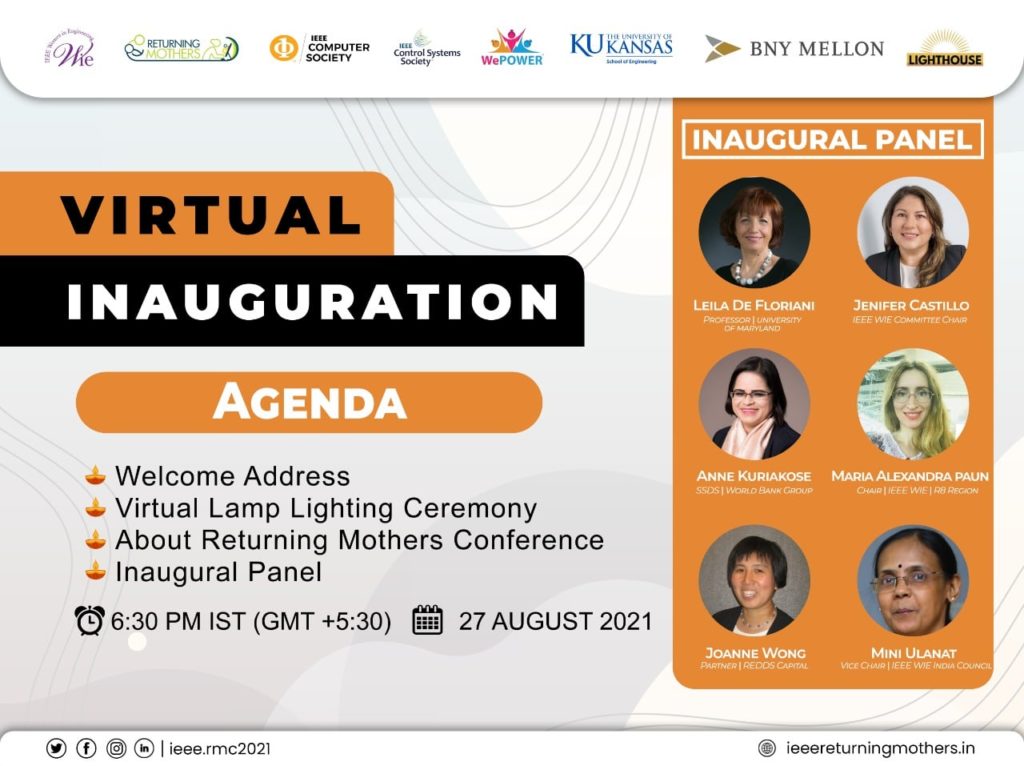
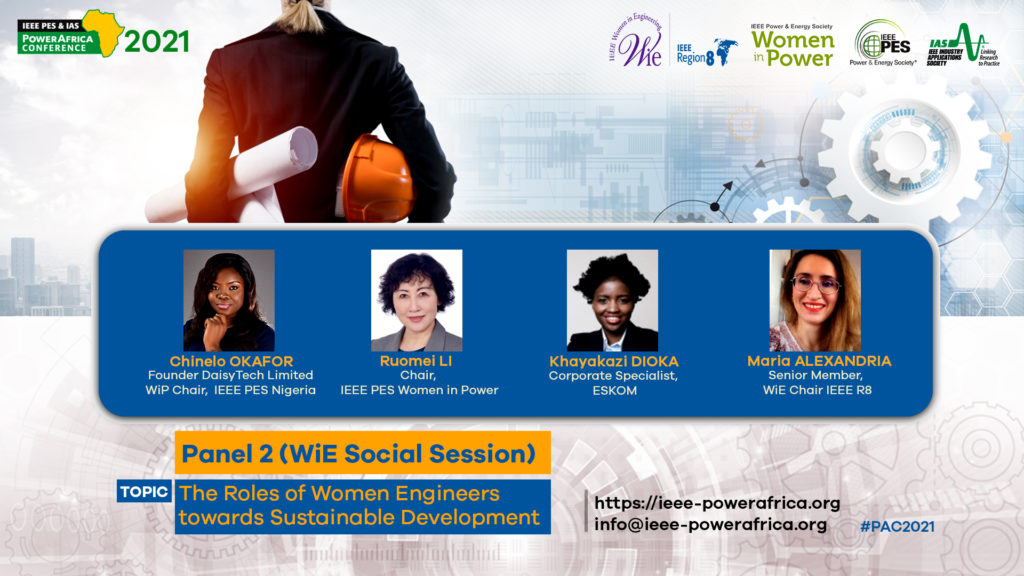
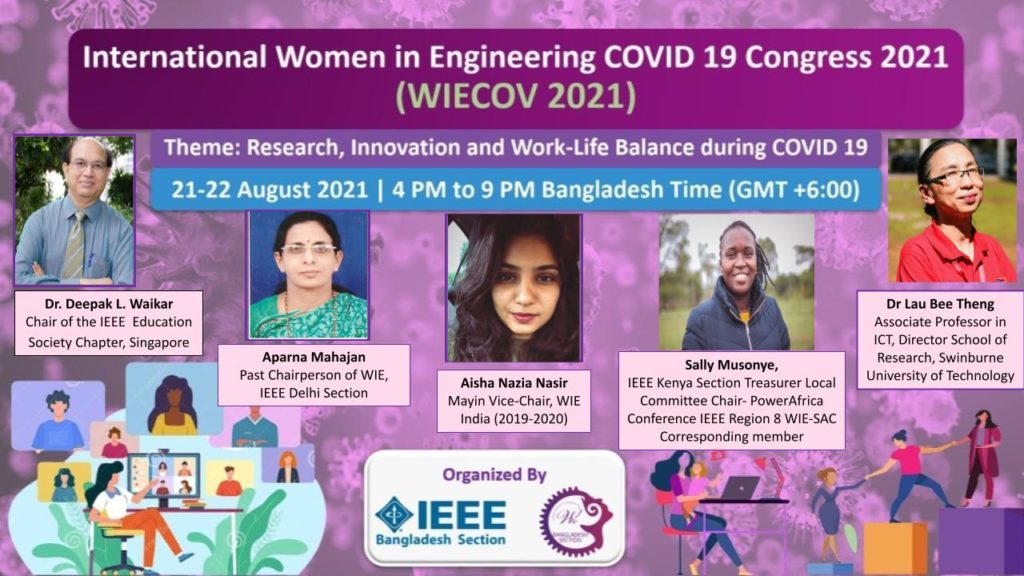
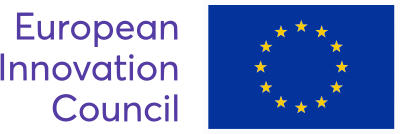

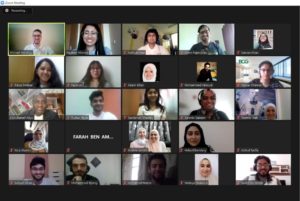
 Mohamed Amin is an IEEE member & volunteer serving currently as IEEE R8 (EMEA) Careers subcommittee chair.
Mohamed Amin is an IEEE member & volunteer serving currently as IEEE R8 (EMEA) Careers subcommittee chair.